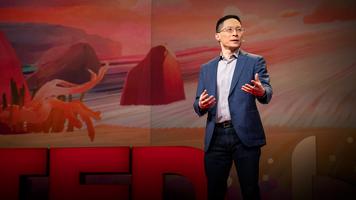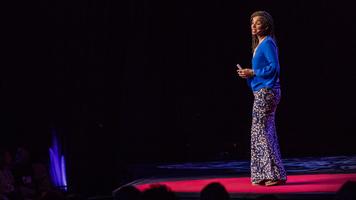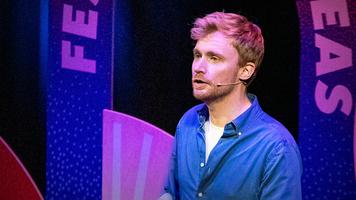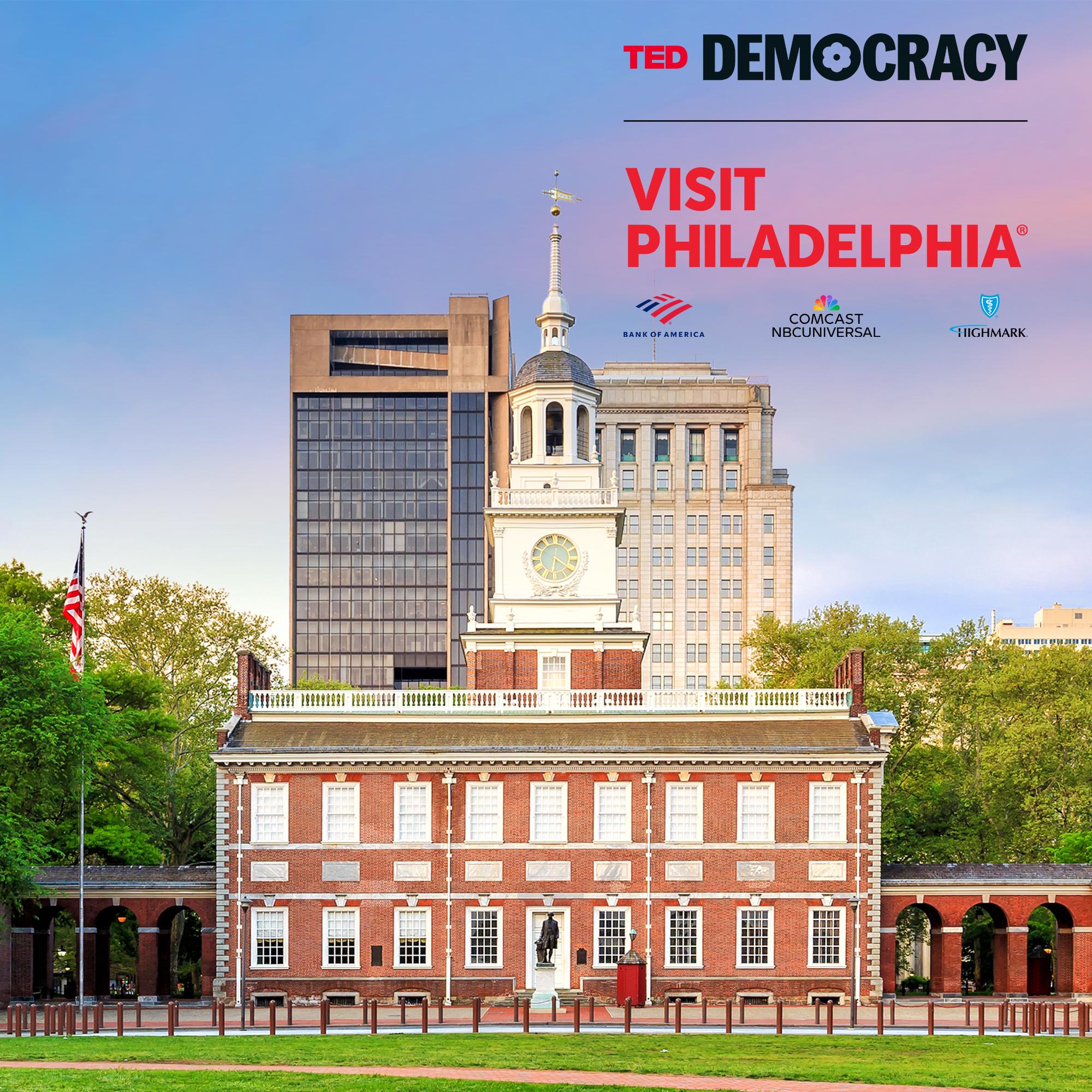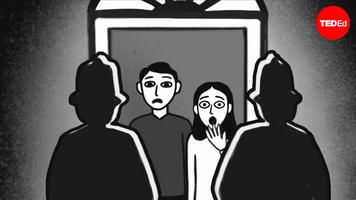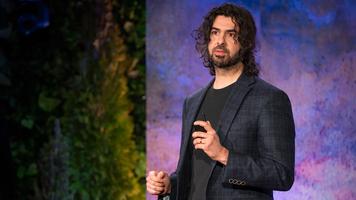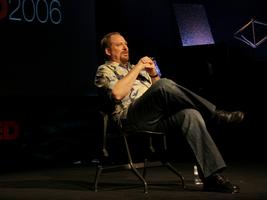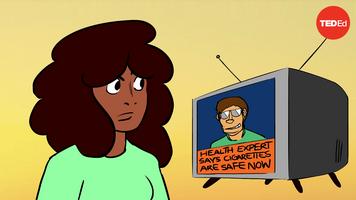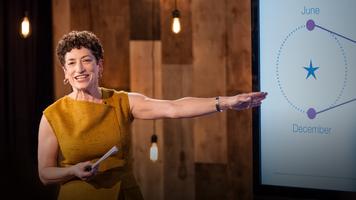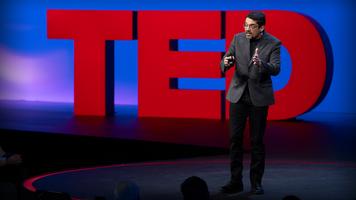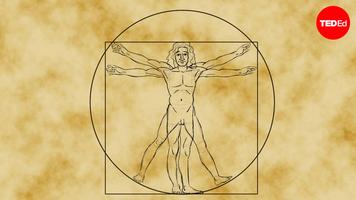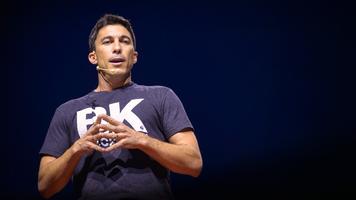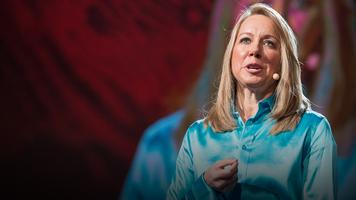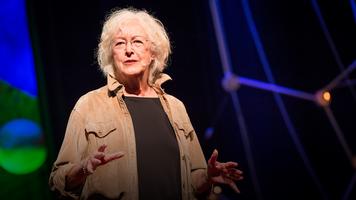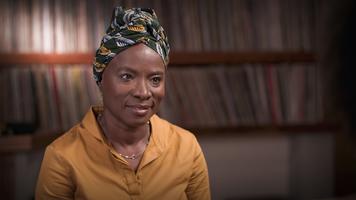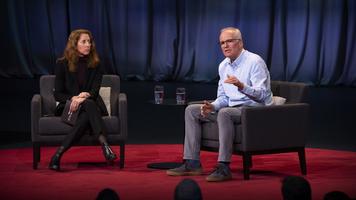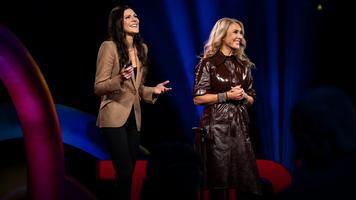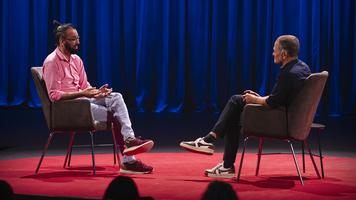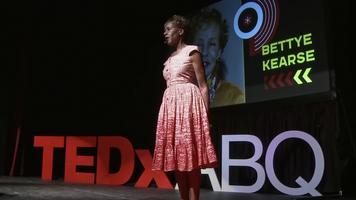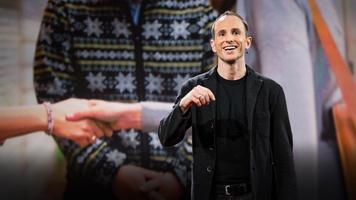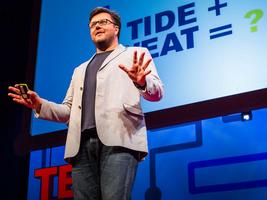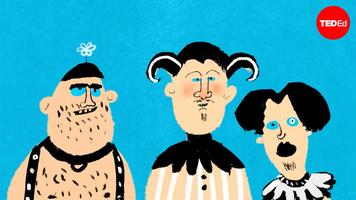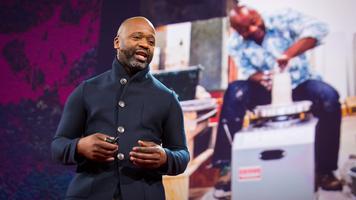All results
1 - 30 of 987 results
Eric Liu: How to revive your belief in democracy
Civic evangelist Eric Liu shares a powerful way to rekindle the spirit of citizenship and the belief that democracy still works. Join him for a trip to "Civic Saturday" and learn more about how making civic engagement a weekly habit can help build communities based on shared values and a path to belonging.
Ndidi Nwuneli: The role of faith and belief in modern Africa
Ndidi Nwuneli has advice for Africans who believe in God -- and Africans who don't. To the religious, she advises against using God to outsource responsibility for what happens in their lives. To the non-religious, she asks that they keep an open mind and work with faith-based organizations, especially on issues like health care and education. "...
Activities
Deepen your comprehension of Understanding Islam with these carefully crafted educational exercises that let you get the most out of this TED Studies subject.
Activity 1
As noted in the Understanding Islam analysis, Islam is an incredibly diverse religion. Select one country or region and learn more about the history of the Muslim faith in that ...
Religion: Understanding Islam
TED Studies, created in collaboration with Wiley, are curated video collections — supplemented by rich educational materials — for students, educators and self-guided learners. In Understanding Islam, speakers take the TED stage to talk about the faith practiced by more than 1.5 billion people worldwide and often misunderstood by many non-Muslim...
Foreword
A note from the International Islamic University’s president frames this TED Study on Understanding Islam. Here, he gives his heartfelt vote of confidence in the course’s curator and in the power of TED content to create understanding about the Islamic world.
Many of us who are not sold on the idea of a grand Western conspiracy against Islam str...
Adam Kucharski: Why does uncertainty bother us so much?
Why do we find it easier to trust some concepts and ideas over others? Mathematician and TED Fellow Adam Kucharski explores the science of uncertainty, revealing how the very human need for explanation shapes trust in science, fear of technology and belief in conspiracy theories.
Playlist: 10 talks to empower your civic participation (10 talks)
Where history inspires action, this playlist explores the ideas shaping civic participation and democracy today. These TED Talks connect global political movements to the challenges we face, offering fresh perspectives on leadership, activism and change. Whether you’re rethinking your role in society or seeking inspiration to take action, these ...
Curated by TED · 10 talks
Alex Worsnip: Ethical dilemma: Who should you believe?
You're sitting on the couch, when you hear a knock on the door. The police have arrived to arrest your spouse— for murder. This accusation comes as a total shock, but their fingerprints were found on the murder weapon. Your spouse insists they're innocent. Should you believe your spouse, even though the evidence against them looks damning? Alex ...
Azim Shariff: Does working hard really make you a good person?
Around the world, people who work hard are often seen as morally good -- even if they produce little to no results. Social psychologist Azim Shariff analyzes the roots of this belief and suggests a shift towards a more meaningful way to think about effort, rather than admiring work for work's sake.
Rick Warren: A life of purpose
Pastor Rick Warren, author of "The Purpose-Driven Life," reflects on his own crisis of purpose in the wake of his book's wild success. He explains his belief that God's intention is for each of us to use our talents and influence to do good.
Ram Neta: How do you know whom to trust?
We believe a lot of things because we've been told - from our personal acquaintances and also experts. With so many belief systems being passed to us, how do we know whom to trust? Using contemporary examples, Ram Neta explains when listening to experts is a good idea... and when it's not. [Directed by Colleen Cox, narrated by Ram Neta].
Naomi Oreskes: Why we should trust scientists
Many of the world's biggest problems require asking questions of scientists -- but why should we believe what they say? Historian of science Naomi Oreskes thinks deeply about our relationship to belief and draws out three problems with common attitudes toward scientific inquiry -- and gives her own reasoning for why we ought to trust science.
Shankar Vedantam: You don't actually know what your future self wants
"You are constantly becoming a new person," says journalist Shankar Vedantam. In a talk full of beautiful storytelling, he explains the profound impact of something he calls the "illusion of continuity" -- the belief that our future selves will share the same views, perspectives and hopes as our current selves -- and shows how we can more proact...
James Earle: Da Vinci's Vitruvian Man of math
What's so special about Leonardo da Vinci's Vitruvian Man? With arms outstretched, the man fills the irreconcilable spaces of a circle and a square -- symbolizing the Renaissance-era belief in the mutable nature of humankind. James Earle explains the geometric, religious and philosophical significance of this deceptively simple drawing. [Directe...
Gonzalo Vilariño: How Argentina's blind soccer team became champions
With warmth and respect, Gonzalo Vilariño tells the captivating story of Argentina's blind soccer team -- and how a sincere belief in themselves and their capabilities transformed the players from humble beginnings into two-time World Champions. "You have to get out there and play every game in this beautiful tournament that we call life," Vilar...
Meg Jay: Why 30 is not the new 20
Clinical psychologist Meg Jay has a bold message for twentysomethings: Contrary to popular belief, your 20s are not a throwaway decade. In this provocative talk, Jay says that just because marriage, work and kids are happening later in life, doesn’t mean you can’t start planning now. She gives 3 pieces of advice for how twentysomethings can re-c...
Lesley Hazleton: The doubt essential to faith
When Lesley Hazleton was writing a biography of Muhammad, she was struck by something: The night he received the revelation of the Koran, according to early accounts, his first reaction was doubt, awe, even fear. And yet this experience became the bedrock of his belief. Hazleton calls for a new appreciation of doubt and questioning as the founda...
Riley Moynes: How to squeeze all the juice out of retirement
Despite common belief, retirement takes more than financial planning. And while you may be beyond ready to go on permanent vacation, you also have to psychologically prepare for when the novelty wears off. Riley Moynes explains the four phases of retirement and offers a framework for how to avoid the inevitable pitfalls of taking it too easy in ...
Angélique Kidjo and Femi Oke: Why joy is a state of mind
With infectious energy, singer-songwriter Angélique Kidjo ties together the threads of her legendary career as a creative force and global activist. In conversation with journalist Femi Oke, she discusses how joy powers her music (and sings an incredible impromptu song), details her work spreading educational opportunities to women and girls acr...
Carlos Rodríguez-Pastor: How business can drive solutions to social problems
Driven by the belief that businesses can — and should — invest in the communities around them, Intercorp founder and philanthropist Carlos Rodríguez-Pastor has built schools, pharmacies and a literal bridge to better serve Peru's growing middle class. In conversation with TED business curator Corey Hajim, he explores the immense possibility behi...
Christopher M. Moreman: The dark history of zombies
Zombies have a distinct lineage— one that traces back to Equatorial and Central Africa. For three centuries, African people were enslaved and brought to the Caribbean Islands. There, a religion known as vodou developed, along with the belief that a person's soul can be captured and stored, becoming a body-less zombie. Christopher M. Moreman unco...
Jennifer Aaker and Naomi Bagdonas: Why great leaders take humor seriously
There's a mistaken belief in today's working world that leaders need to be serious all the time to be taken seriously. The research tells a different story. Based on the course they teach at Stanford's Graduate School of Business, behavioral scientist Jennifer Aaker and corporate strategist Naomi Bagdonas delve into the surprising power of humor...
Aziz Abu Sarah and Maoz Inon: A Palestinian and an Israeli, face to face
How can Israelis and Palestinians achieve peace? Palestinian peacemaker Aziz Abu Sarah and Israeli peacemaker Maoz Inon discuss the immeasurable tragedies they've experienced growing up in the region — and how they choose reconciliation over revenge, again and again. With a fierce belief in a better future, they talk about conflict, safety, find...
Bettye Kearse: The history of a name
Can identity withstand generational trauma? "Five generations of enslavement had not destroyed their belief in themselves," says retired pediatrician Bettye Kearse as she shares the oral historis of her family—from the naming ceremonies of her Ghanian ancestors to her grandmother's enslavement in the house of James Madison. In this captivating t...
Joe Gebbia: How Airbnb designs for trust
Joe Gebbia, the co-founder of Airbnb, bet his whole company on the belief that people can trust each other enough to stay in one another's homes. How did he overcome the stranger-danger bias? Through good design. Now, 123 million hosted nights (and counting) later, Gebbia sets out his dream for a culture of sharing in which design helps foster c...
Paul Kemp-Robertson: Bitcoin. Sweat. Tide. Meet the future of branded currency.
Currency -- the bills and coins you carry in your wallet and in your bank account -- is founded on marketing, on the belief that banks and governments are trustworthy. Now, Paul Kemp-Robertson walks us through a new generation of currency, supported by that same marketing ... but on behalf of a private brand. From Nike Sweat Points to bottles of...
Lillian Faderman: Harvey Milk's radical vision of equality
By 1973, Harvey Milk had already been many things: naval officer, high school teacher, bit-part actor and wandering hippie. Starting fresh in San Francisco, his belief in a more personal approach to local government led him to run for office in the heart of American gay culture, the Castro. Lillian Faderman details the tenacity and courage of Ca...
Beatrice K. Otto: How dangerous was it to be a jester?
Contrary to common belief, jesters weren't just a medieval European phenomenon but flourished in other times and cultures. The first reliably recorded jester is thought to be You Shi, of 7th century BCE China. Jesters had unique relationships to power: they could be viewed as objects of mockery or as entertainers and trusted companions. Beatrice...
Theaster Gates: How to revive a neighborhood: with imagination, beauty and art
Theaster Gates, a potter by training and a social activist by calling, wanted to do something about the sorry state of his neighborhood on the south side of Chicago. So he did, transforming abandoned buildings to create community hubs that connect and inspire those who still live there (and draw in those who don't). In this passionate talk, Gate...

